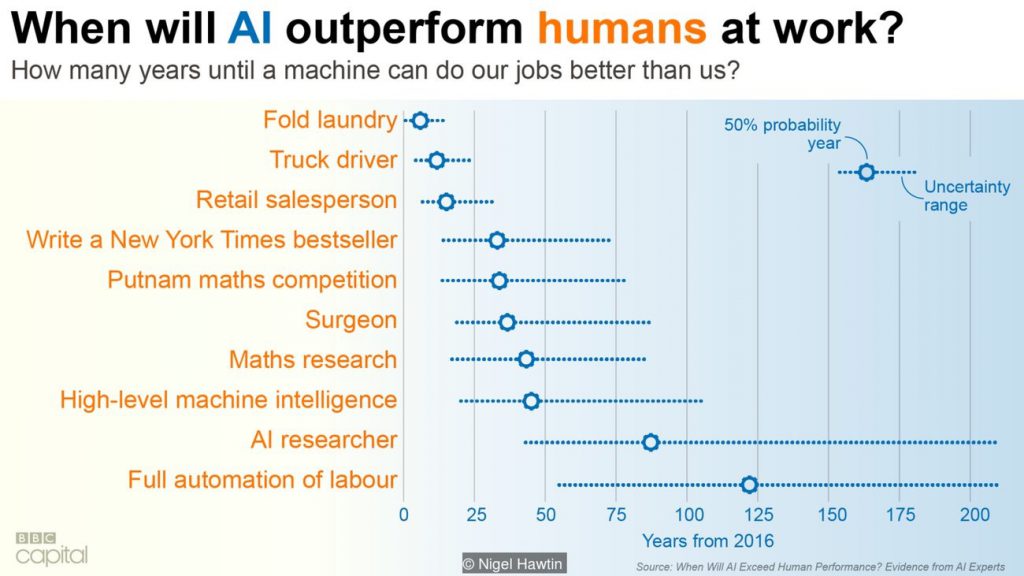Will Robot Surgeons Provide Better Clinical Histories?
Berci Mesko, MD, PhD, The Medical Futurist, a self-proclaimed “geek physician with a PhD in genomics and Amazon Top 100 author” who envisions “the impact of digital health technologies on the future of healthcare, and helps patients, doctors, government regulators and companies make it a reality” recently shared this infographic on Twitter.
Berci has a lot of content and recommend checking out his site and following him for the latest on future technologies in healthcare and medicine. As a sidenote, I first met Berci perhaps a decade ago when he was a medical/graduate student and his thoughts are today more fact than science fiction. Wearable health sensors, 3D printing for implantable devices and ethical issues concerning the use of technology he was already writing about when I started this blog 10 years ago.
Unfortunately, we have not spoken at a meeting together since that day in Toronto but this science fiction fanatic perhaps sees less science fiction and more science and how it will impact the delivery of care for patients and physicians. When the medical tricorder comes to market as a consumer hand held technology retailing on the shelves of your local Walgreens before 2360 as predicted in Star Trek, Berci will break the news.
Anyways, he shared this infographic, to be complete, designed by Nigel Hawtin @nigelhawtin based it appears on “When Will AI Exceed Human Performance? Evidence from AI Experts“.

So, the good news is that AI will fold our laundry within our lifetimes and perhaps replace commercial truck drivers in most of our lifetimes.
Retail salespeople may also be replaced but many of us at that point may be too old to notice. Robots will be able to write a New York Times bestseller with high likelihood by the end of this century.
Surgeons have a 50% chance of being outperformed by AI by 2050 or so with an extended “uncertainty” range according to AI experts.
Ironically, AI researchers themselves will not program robots that will outperform them before this century is over. Look to 2110 or so.
And full automation of labor is still more than 125 years away, which would be at least 430 years since Thomas Newcomen invented the first productive steam engine.
There is a lot of talk about AI in pathology right now.
Specifically, machine systems, machine learning and deep learning diagnosing cancer and other human diseases, essentially replacing pathologists. While many think it will be technically possible to do so over time, I think most also recognize that this will not necessarily replace us as it will surgeons apparently before some of us can retire from the practice of pathology, but it will change the way in which we practice.
Certainly automation is not new to clinical or anatomic pathology laboratories. And adding artificial intelligence to this will happen to further speed workflow and add efficiency.
I just hope the robot surgeon of the future provides better clinical histories than the ones we have today. This may add some efficiency in our workflow by itself.


































